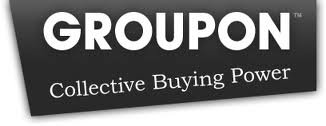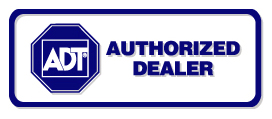You can build the stadium, field a team, schedule the game, arrange concessions, and sell corporate sponsorships, but if you can’t keep fans in the seats all season, season after season, what good is the game?
Answer: if it doesn’t work for the audience, it doesn’t work for anyone.

If you can't keep people in the seats, what good is the game? (Image from: theemptystadium.blogspot.com)
I received an email from a colleague at the office alerting me to a new offering from a competitor. The offering’s a new website; its url alone was enough to inspire this post. I’ll go straight to my take.
There are three primary stakeholders here: the website users, the advertisers on the site, and the company building, running, promoting, and selling the site.
This is the list stakeholders who were considered in rank order: the company themselves, their advertisers. It’s a basic selling orientation, rather than a proper customer orientation.
The website, KRDO.biz, is a combination directory, deals, and portal site from a local television station. Established competitors in this space include Google, Groupon, Craigslist, Dex, YellowPages, SuperPages, and dozens of others. And that’s to say nothing of all the local and regional competitors with similar offerings, especially in the deals space. The market’s saturated – both for audience and for advertisers.
It immediately reminded me of a site they offered up and backed with tens of thousands of dollars in local television advertising inventory a couple years ago, GColorado.com, a local classifieds site. A visit to that site today is similar to, but far less interesting than visiting a ghost town. There’s absolutely nothing on offer in most of the categories. In the common “Cars for Sale,” there are three cars. More importantly, there’s nothing the site offers that Craigslist didn’t bring to this market nearly a decade ago.
The problem: neither of these sites meets an unserved or underserved market need, solves a problem, makes something easier, delights or entertains, or provides anything unique or new. A television ad may motivate you to visit (that’s a stretch, I know), but a tired initial experience won’t bring you back. I would also add that the other audience – the advertisers – does not really have anything new in this offering, either.
Instead, the sites fit these criteria: we can definitely build it and we’re pretty sure we can sell it to advertisers.
The website users, of course, are absolutely critical to long term success. Even in the short term, though, their interests supersede those of the two other stakeholders. Yet they feel ignored in both of these offerings.
If there’s no sustained traffic, the sites will slowly die, as advertising contracts fail to get renewed. I don’t know what the fate of the directory/deals/portal will be, but the classifieds site was DOA and never found its pulse.
Entirely Different Angle
Would the same people who are building, selling, and marketing this site invest in it the project with their own money? Would they sacrifice their employment within the television operation to dedicate themselves to it exclusively? If so, there’s more at play here than I’ve observed. If not, then to whom does the offering seem viable?
Qualifier
My purpose here is not to denigrate a competitor. They’re not alone in their approach; this is certainly happening everywhere all the time. Bonus points do go to them for trying to open up new streams of revenue from non-television sources. And it’s not like I or the local television operation in whose employ I remain for a few weeks is aggressively and insightfully innovating online (on the upside, we remain focused on continuing to be the top-billing station and most-watched news product in the market).
Admittedly – and finally – there may be more at play than I’ve observed (I hope there is). It’s not like I’m on a “explain your underlying strategy to me” or “describe for me the finer points and assumptions of your business model” basis with these people. If the site finds success, I’ll stand corrected and be served my own foot.
The Bottom Line
For whom did you build your product or design your offering? If it’s not for a stakeholder necessary for long term success, it’s time to double back, review, and take another go at it. Or … what good is the game if you can’t keep people in the seats?
Click here for an excellent overview of a successful local media company.

